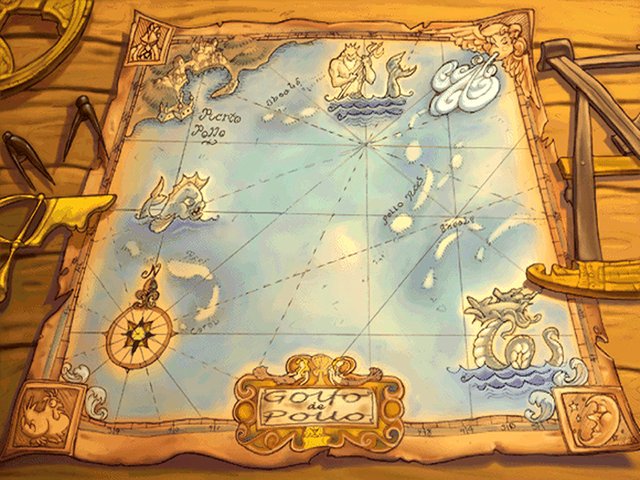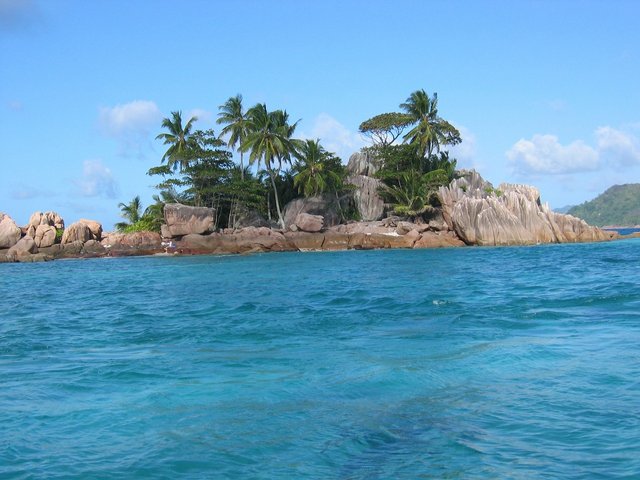Pirate Island
There is this analogy of culture called "Pirate Island." It is used to help illustrate the notion of relative morality.

Source: Lucas Arts, Monkey Island
Relative morality is the idea that I'm not as bad as some people, while I accept that there are others that are better than me. It's like grading on a curve and it's a useful idea.
There's a relative scale and there's an absolute scale. My main focus here is the relative scale.
For example, saying, "Compared to Hitler, Bob is probably not so bad," is not a very nice thing to say about Bob. Nevertheless, it is a relative assertion. If you swapped in Hitler for Jim, the meaning of the assertion completely changes, depending on the character of Jim, assuming Jim is completely different from Hitler, which is likely.
Hitler is often used to set a very low bar. In a relative sense, you can't get much worse than Hitler. So it's a safe minimum.
On the one hand, I believe everyone is bad. Not necessarily "Hitler Bad," but bad. If you have a glass of water and add a tiny drop of sewage, that's a bad glass of water. It's not a glass of sewage, but it's not something you'd like to drink either.
On the other hand, I also believe everyone is pretty good compared to some, that is, relative to one another, most people are good. A glass of water with one drop of sewage is better than a glass of sewage, relatively speaking.
So just in the absolute sense, everyone is bad. The absolute measure is difficult because perfection is a primary factor. The relative measure is much easier because we can ignore perfection.
Image there is an island full of pirates. They live their lives on the island and have pirate families. The strong pirate men occasionally go sailing to "find" supplies and riches to improve their pirate lives and the lives of their pirate families.
Pirate island is relatively small and it's only a small part of the tri-island area. But relative to the other pirates on the island, these pirates are all pretty good. Relative to the tri-island area, none of them are good in the slightest.
If the pirates didn't do any "piraty things," the peaceful (yet ignorant) residents of Pirate Island would soon perish because their pirate home just isn't big enough to maintain any kind of pirate agriculture. So in a sense, the pirates feel compelled, even justified, to pillage.
They think their pirate way of life requires a certain amount of violence against the non-pirates. The non-pirates have a very hard time being empathetic for the pirates' situation.
The more the pirates do violence, the more hated their entire pirate society becomes. After all, if the pirates didn't have a whole pirate island to support, maybe they would be as violent as they are.
In fact, the non-pirates realize that maybe the pirate island residents are ignorant of what's really happening. Only the aggressive pirates typically leave the island. Maybe the rest of the people on the island have no idea what's happening on the high seas.
The non-pirates don't like the fact that 90% of the resources in the tri-island area are going to Pirate Island. What benefit is there for the non-pirates to support the pirates?
The pirates don't like the fact that the non-pirates are so protective of their resources. After all, they need the resources. It is in the pirates' best interest to "gather" these resources. Not only that but the pirates protect the entire tri-island area in the process of "gathering" resources.
Some day, the non-pirates will cut off the pirates. And the peaceful (yet ignorant) residents on Pirate Island will wonder why the entire tri-island area is now against them. PNN will tell them that the entire tri-island area has declared war. All the while, the peaceful (yet ignorant) residents will think they've done nothing wrong, even though they supported the aggressive pirates and their plans to pillage.

Source: Pixabay